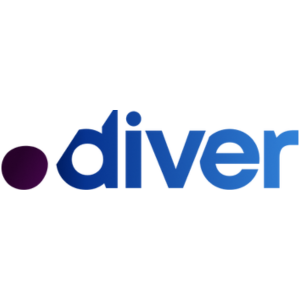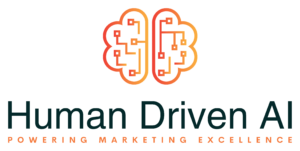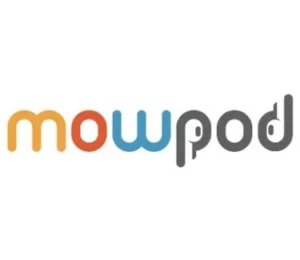Navigating non-traditional career — Jennifer Byrne
Jennifer Byrne
Formerly employed by Microsoft

- Part 1Using technology for empowerment
- Part 2 Navigating non-traditional career — Jennifer Byrne
- Part 3The future of work — Jennifer Byrne
Show Notes
Quotes
-
“I think about the way the work is changing through the lens of the technology that is changing it. You see a lot more technology infused into everyone’s current job. If you’re a doctor or in marketing, you’re using a lot more technology now than you were ten years ago. And with that, you get to be more efficient, creative, and visible and you have to acquire more skills.” -Jennifer“In largely positive terms, as long as people have the training and the time to acquire the technical skills they need to have, it’s good. The other side which is not so positive is how technology is actually eliminating jobs and that’s something we need to think about because one of the trends we havebeen seeing over the last couple of recessions is that the skills that are going away, while it is about automation and as AI becomes more prevalent, the job class being eliminated is not necessarily at the bottom of the wage scale but more in the middle.” -Jennifer“Having a conversation itself can help mitigate the potential loss of jobs because of technology. It’s the discussion within the context of their own company, their own team, their own career, this itself is a very important work.” -Jennifer“The other thing that I am spending time on is this idea of skills and skills attainment. Because we know that whether or not you’re in a job that you’re going to keep, you need more technical skills to do it well or you are in a job that will go away. Either way, you still need new skills.” -Jennifer“The silver lining is because things are moving so fast and technology is evolving rapidly, there is this acknowledgment in HR and company leaders that you don’t necessarily have time to go back to school for four years. You find better and quicker ways to get skilled. So there’s a huge growth in training and online certification.” -Jennifer“If you’re a marketer for example and suddenly, a technology becomes a threat to your job, you can figure out what kind of skilled pathway will lead you to the kind of work you want to do. That is an opportunity to use the same technology to solve the same problem that it created. It could be creating platforms that connect people with the skills they need.” -Jennifer“Here’s an analogy. World Hunger. It’s the scenario where we have warehouses of food around the world and they are going bad and yet a lot of people are going hungry. It’s not that there isn’t a surplus, it’s that we don’t know how to connect the people that need it. It’s not a supply and demand problem, it’s a supply chain problem.” -Jennifer“Skills are like that as well. We have Coursera and Udemy and EdX who provide online training for tech skills but it’s duly hard if you’re somebody whose job was just eliminated and to make your company give you six months of free training to know what you should be studying.” -Jennifer“It seems there are a couple of problems here with re-engineering the workforce. One there’s the career path-ing and skill development, and two there is the actual training and education piece. And maybe the third is finding the right match which is essentially marketing, like matching the right product offer with the right customer.” -Ben “Solving the problem of re-engineering the workforce is by helping the organization who have jobs describe the pathways that they are looking for. The educational institutions and the academia can also do a better job of saying, if you want this kind of job, then what we want to see from you are these skills. That’s starting to happen now.” -Jennifer“Certainly when I talk to people, I talk about the mindset around curiosity and the courage to go just try something new. I also like to talk about the difference between digital context and digital fluency.” -Jennifer“Ben, you raise a very important point about personal branding. I think that’s part of the story. If you ask people to figure out what they want to do next, whether it’s the same career or a different one, and acquire the new skills they need, how do they talk about themselves and I don’t have an answer to that but I would say that the victor is the one who goes first.” -Jennifer“As long as you are marketing yourself, as long as you are talking about how you learned other things and this is how I think this could apply, that itself demonstrates a bit of courage and curiosity which are the underlying characteristics that people are looking for.” -Jennifer“I think we’ll see a great amount ofworkforce globalization. I think the pandemic is a great proof of that because everytime you untether work from a physical location, you allow a lot more flexibility in terms of where people are. There are some limits of course, depending on the industry you’re in, what can be done overseas versus here.” -Jennifer“Context matters and cultural context matters a lot. Language matters. So there’s always a little bit of advantage having people who work locally and who understands context really well. There’s some areas where globalization will have less of an impact and others where it won’t.” -Jennifer“Access to technology will matter a lot. If I’m thinking about this from the US lens, I worry about people in this country who need jobs and if we give them the right access to the skills they need to acquire.” -Jennifer“Inherently the world is moving faster, becoming more international, technology is allowing us to potentially create more value, but it has a transition pain from a large group of people.”-Ben
- Part 1Using technology for empowerment
- Part 2 Navigating non-traditional career — Jennifer Byrne
- Part 3The future of work — Jennifer Byrne
Up Next:
-
Part 1Using technology for empowerment
In today’s episode, Jennifer talks about navigating a non-traditional career in technology, how coming from a different perspective paved the way for her leading prominent technology organizations and eventually realizing some unintended consequences of broad technology adoption and what she can do to alleviate the very real digital divide. Jennifer also becomes a bit more personal about the gender impact she experienced in the male-dominated space of the tech industry and how she leveraged the uniqueness of her position.
Play Podcast -
Part 2Navigating non-traditional career — Jennifer Byrne
In this second episode with Jennifer, we talked about the trends in the future of work and how technology is already infused in almost any job and how we can utilize technology to solve the problem of job losses that it created. Ben and Jennifer also talked about how we can re-engineer the workforce in the face of rapid technology advances and the right mindset in using a global and local workforce.
-
Part 3The future of work — Jennifer Byrne
In our third and final episode with Jennifer, we talked about how technology can make an individual feel empowered and reinvent yourself through online education, how personal branding can help you in your career path and what’s in store in the future of technology and the workforce.
Play Podcast










